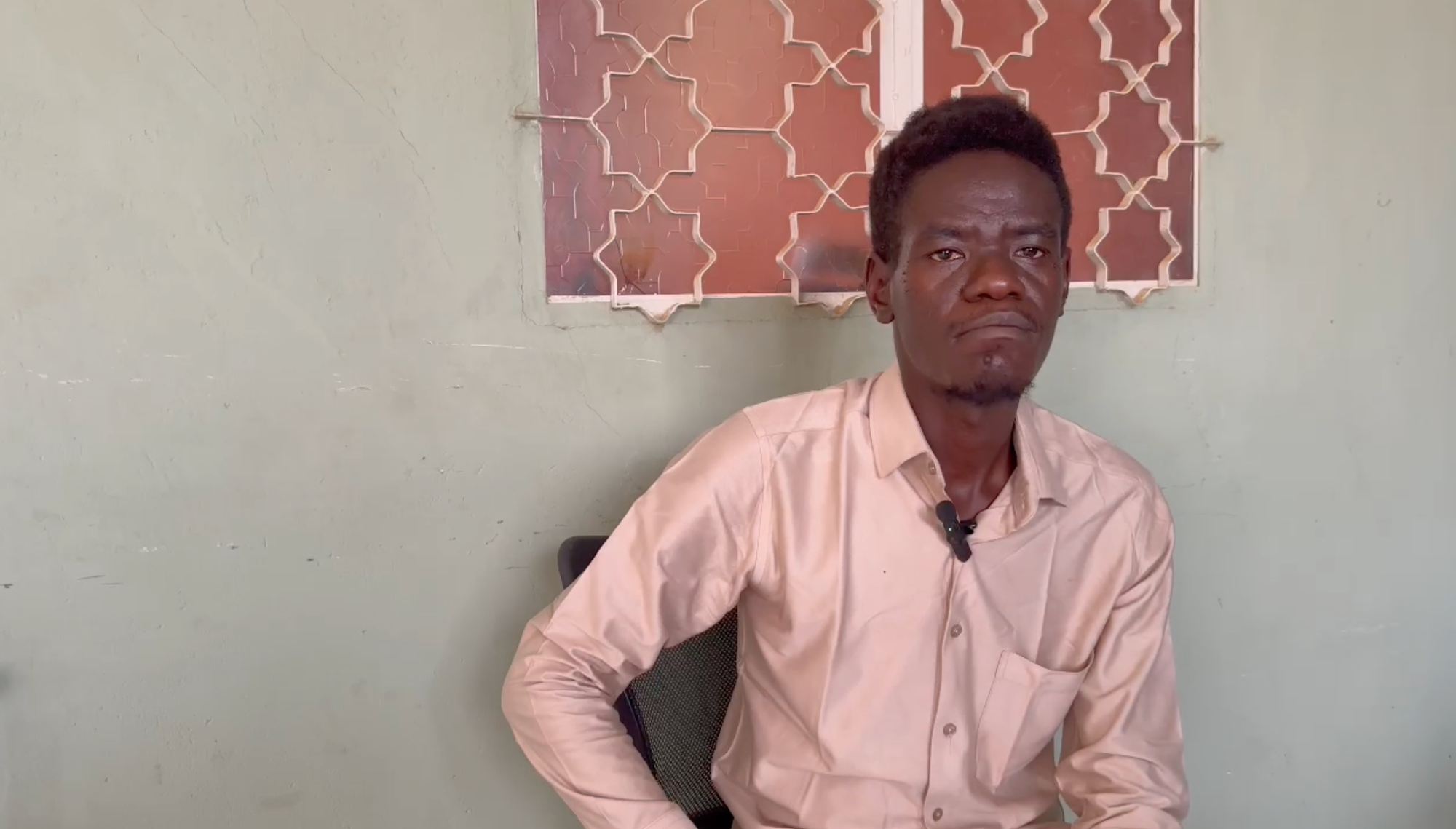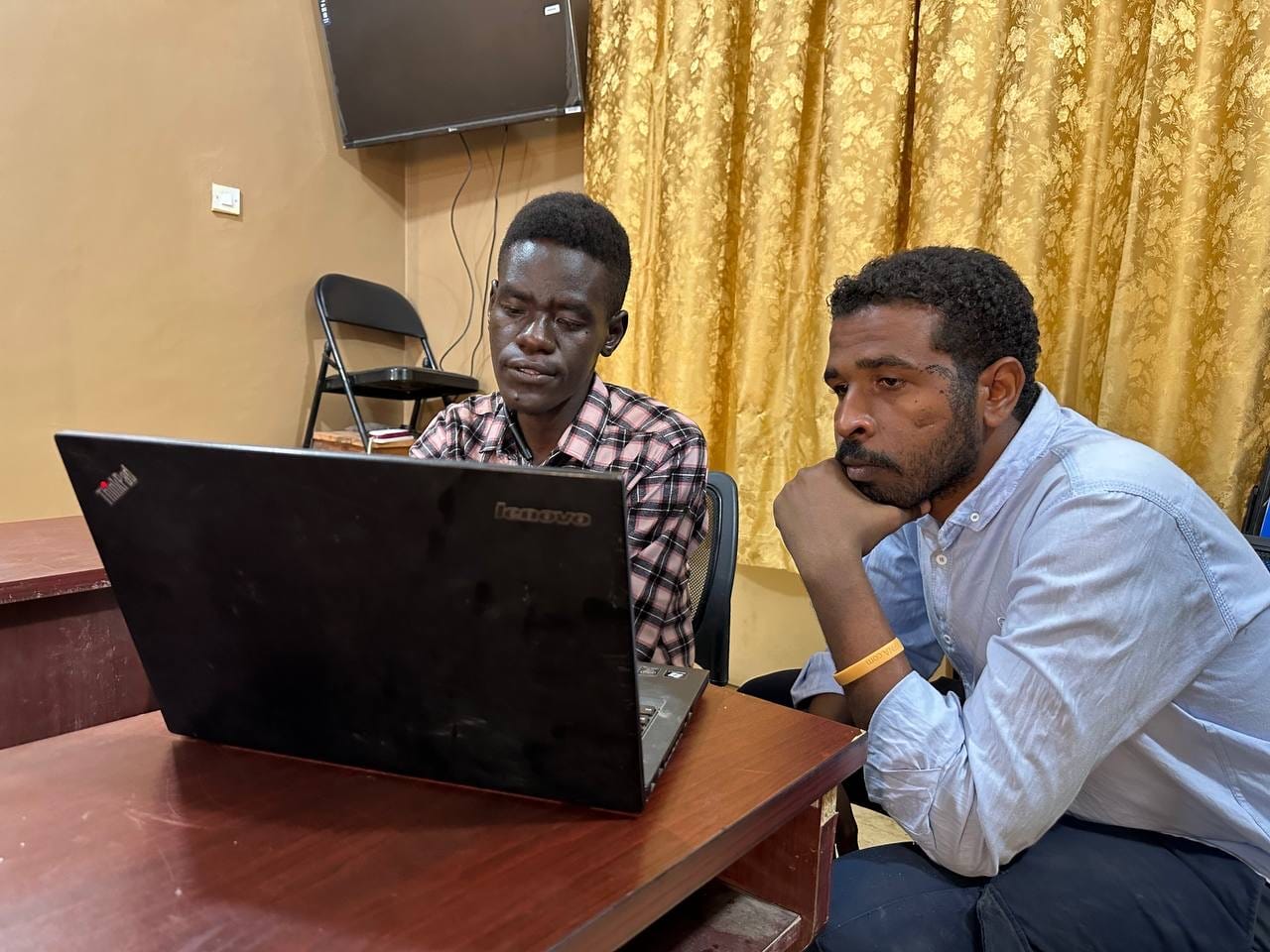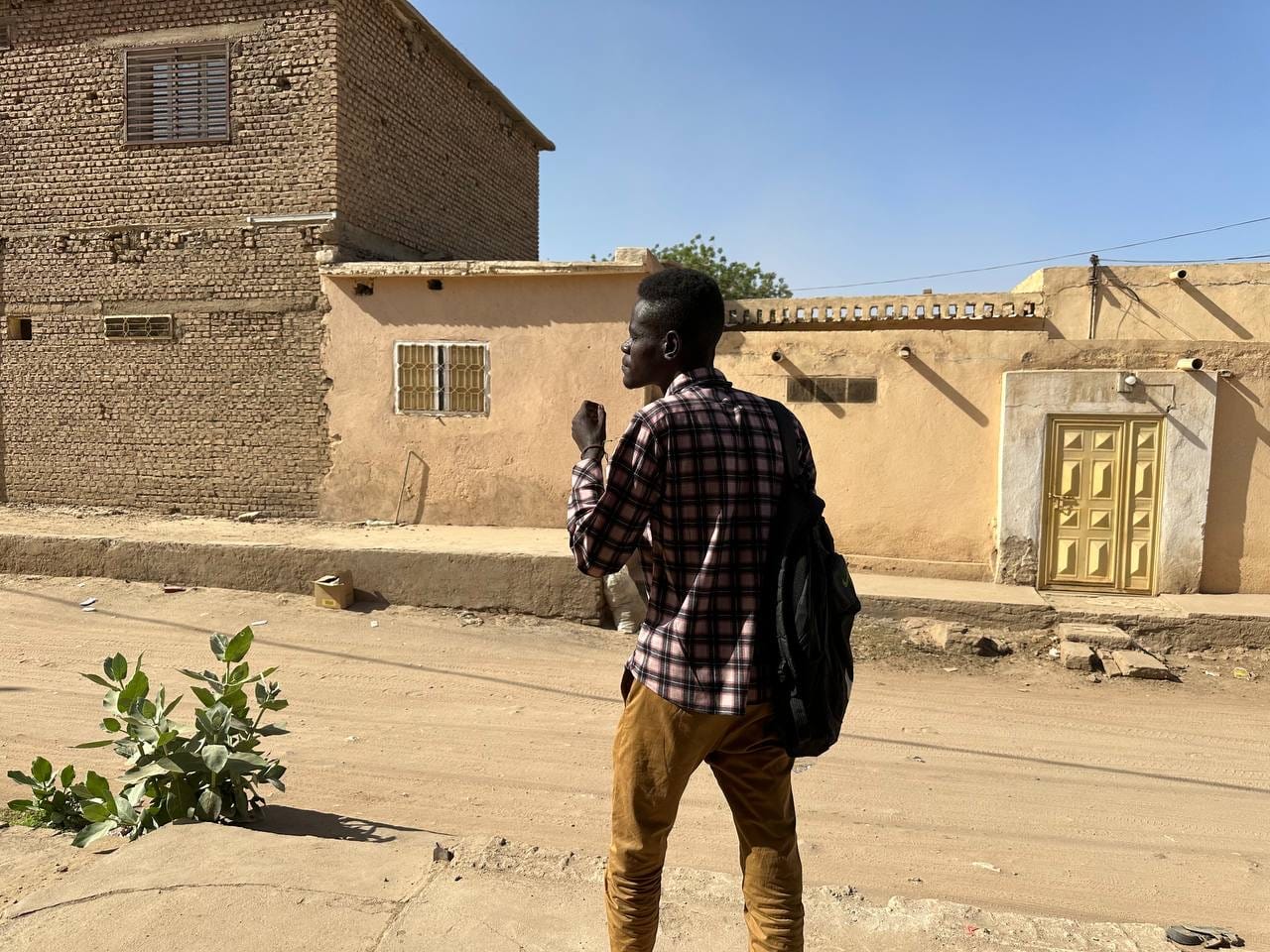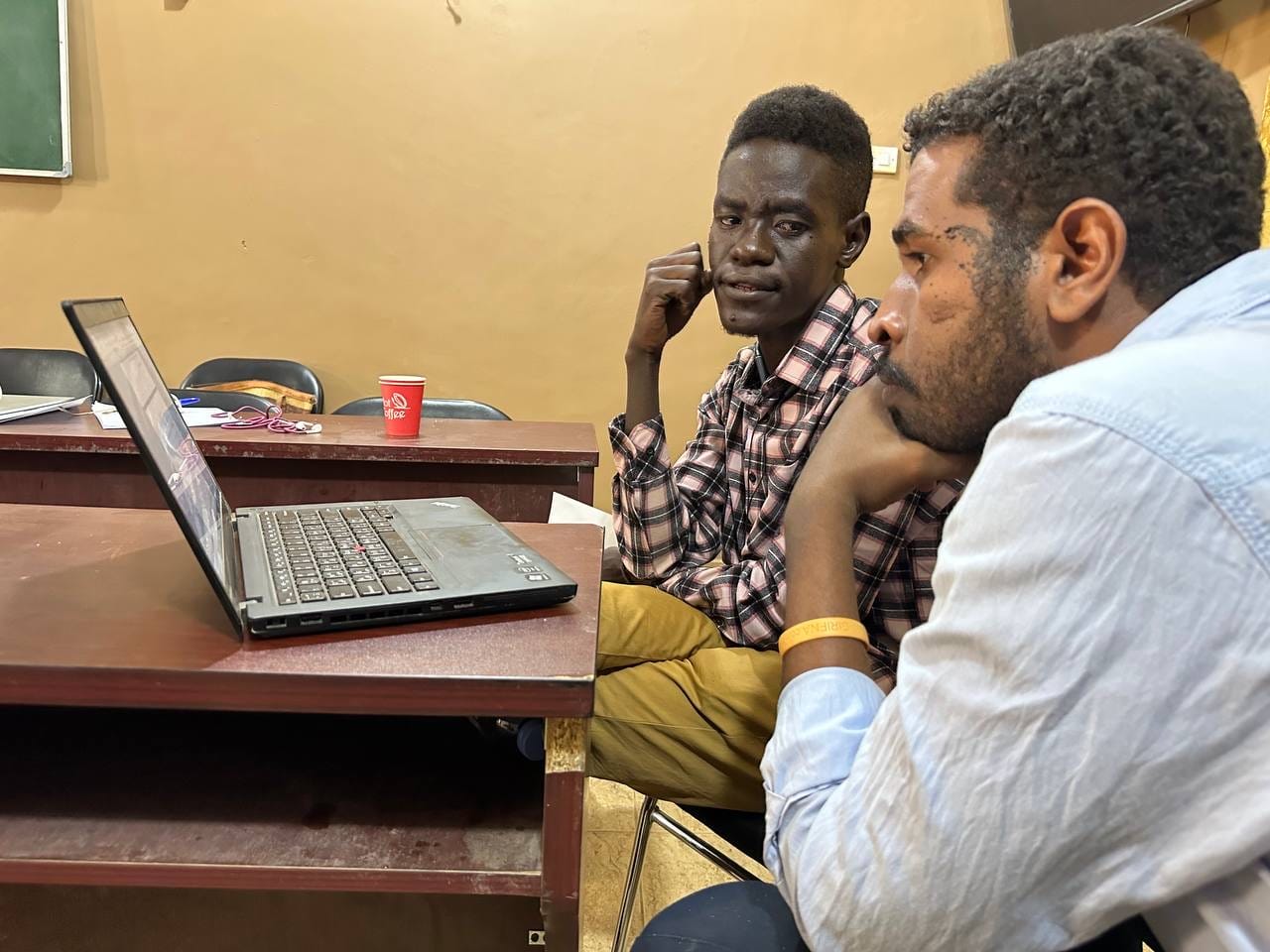Prejudice Still Plagues Darfuris
Sudan is known for ethnic conflict, particularly in Darfur where many say genocide took place twenty years ago. Ethnic conflict is still common in Sudan, and confrontations between tribal groups is a regular occurrence.

written by Marwah Alamin and Radi Dahan with support from the Alive-in/ Editorial Team
This story is part of a partnership between Alive-in/ and DT-Institute to support Sudanese journalists inside and outside Sudan. DT Institute is both a funder and an implementer of peace and development projects. More stories can be read in Arabic on the Alive-in/Sudan Facebook page.
Alive-in is a not-for-profit media agency that mentors journalists from underrepresented communities to increase local and national understanding.
If you are able to support our work financially, please click the button below.
KASSALA, SUDAN–Najm al-Din Daaod, 30, sits patiently in a brightly-lit, though sparsely furnished office in Kassala, now practically on the frontlines of Sudan’s latest civil war. Najm al-Din’s story provides a window into the way the combatants in the current war have played on historic divisions between Sudanese people from different provinces and ethnic groups.
"What scared me the most on my journey out of Khartoum was the possibility of not returning to the place and life I was used to! The unknown fate also frightened me.”
Alive in Sudan spoke with Najm al-Din in Kassala, who works as an independent researcher after the war broke out in Khartoum in mid-April 2023. Najm al-Din says that, before the war, he did not face any problems or difficulties in his work. Whether he was traveling inside or outside Sudan, things were normal; he frequently traveled between Sudanese states as part of his research work.
But with regret in his tone, Najm al-Din described how his situation changed drastically following the outbreak of war and its spread to the central region of the country, including Al-Jazira State.
Najm al-Din was born to a family originally from Darfur, and although he worked in relative safety, people from Darfur are often discriminated against by those from other parts of Sudan.
“I hadn’t planned to settle in Kassala, and when I headed there, it was because it was relatively far and safe. But the unknown fate and future tied to the unknown duration of the war stirred fears within me—fears of not returning and being in a place unlike the one I had known."
Across Sudan travelers and displaced people have faced various forms of harassment from both sides of the conflict. Najm al-Din told Alive in Sudan about two such experiences, one during an authorized work trip and the other in the general market in Kassala.

In December 2023, Najm al-Din was managing a project in Kassala State focused on building peace through combating hate speech. He traveled for this project to several localities in the western part of the state. He had been used to traveling before and after the war.
"Traveling after the war is entirely different from before the war. Complications begin at the checkpoints, with long stops, interrogations, and searches."
During his last trip, Najm al-Din was detained at the "Kubra" checkpoint on the Kassala-New Halfa road for 40 minutes. He described the experience as "difficult because it was unjustified."
The young researcher couldn't immediately grasp the reasons for his detention, but it soon became clearer: "In my opinion, the nature of the detention is related to the war in one way or another. I was traveling officially, and the activity we were conducting was officially sanctioned. We had all the necessary permits for the activity in the New Halfa locality.”
“When we arrived at the designated checkpoint called Kubra, I was personally taken down for inspection. The vehicle had five passengers, including the driver. Initially, I didn't realize it was personal and thought it was a routine procedure—checking the luggage and asking routine questions like 'Where are you coming from? Where are you going?' But the nature of the interrogation and questions, in my opinion, had an element related to my ethnicity and background, and I believe that was the reason for my detention among all the travelers."

Najm al-Din felt personally targeted at the checkpoint due to his ethnic background, based on the nature of the questions posed to him during the interrogation. He was asked about his birthplace listed on his ID card, which was South Darfur State, prompting a direct question: "You are from South Darfur, what brings you to Kassala after the war?" and also "What is your relationship with any party to the conflict, especially the Rapid Support Forces?"
Najm al-Din later learned that the focus was primarily on those who arrived in Kassala after the war, whereas those who were there before the war were not subjected to as much harassment.
A month after the checkpoint incident, Najm al-Din found himself in a similar situation, but this time inside Kassala market. "Around January 20th, in Kassala market, there was a campaign to stop people, search them, and inquire about their backgrounds. For me, it was much clearer than during the travel incident, as the primary reason for the detention was skin color and other identity-defining traits."
Najm al-Din stopped working in roles that required movement or travel, shifting to office work and remote work. The security situation he faces has affected his financial and psychological stability. He shared his feeling that the focus on him has intensified due to his activities related to peace-building work, independent research, and initiatives to end the war.
“This war will be the last one to devastate Sudanese lives. Our desire to live as Sudanese within Sudan is greater than the interests of the conflicting parties, their international supporters, and the benefiting parties. I hope this war ends soon, and I urge all parties who see stability and prosperity in Sudan as in their interest to make more efforts to reduce the factors that extend the war and prevent its spread to other areas. Enough of the damage suffered by other states, and there is no need for all of Sudan to go through these hardships to realize the necessity of stopping it."

